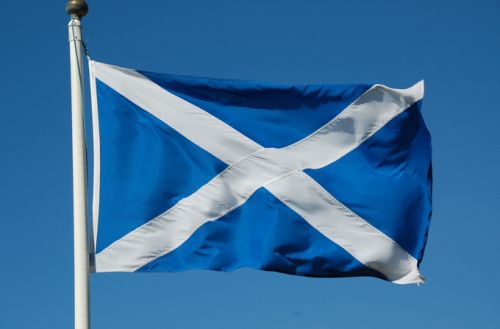Multiple Scottish bishops have appealed to Catholics to vote in the Sept. 18 referendum which will decide whether or not Scotland will become independent of the United Kingdom. “Along with the Bishops of Scotland, who are deeply conscious of the importance of this referendum, I encourage and urge all those eligible to vote to do so with complete freedom of choice and in accordance with their prayerful judgment of what is best for the future,” Archbishop Philip Tartaglia of Glasgow said in an Aug. 29 statement. “May God guide us and bless us in whatever choice we make in good conscience.” The referendum on Scottish independence will take place Sept. 18 to decide the question “Should Scotland be an independent country?” The Scottish Independence Referendum Bill passed the UK Parliament in November of 2013 and received Royal Assent one month later. Scotland has been united with England as a single state since 1707. In their statements, the archbishops did not take a side in the debate but still exhorted Catholics in Scotland to perform their civic duty and to vote according to their consciences. Archbishop Leo Cushley of St. Andrews and Edinburgh laid out some principles that voters should consider. “Like everyone else, Catholics are a part of the world. Urged by the love of Christ, we are called, to be citizens who contribute positively to the common good and who strive always to consider others and their good before our own.” “We are called to promote peace, integral human development and authentic human rights, and to have a special care for the poorest and the weakest in society,” the archbishop wrote. “We are also concerned for the rights of all people, to freedom of conscience and to the right to believe and to practise their faith … These freedoms are absolutely essential to a modern democratic society and we should always be vigilant of those who would seek to limit them.” Archbishop Cushley noted that “since all of us are made in the image and likeness of God, no matter our race, our beliefs or the way we live, we also have a concern for moral values based upon our common humanity. The promotion, therefore, of laws which allow us to believe, teach and live our faith and morals is and will always be of concern to us, whether at the Scottish, UK or European levels.” “So I encourage you, in the light of Catholic social teaching, carefully to consider the issues and to do your civic duty on the day itself.” He concluded that regardless of the result of the referendum, “I would hope that all Catholics will continue to engage positively in public discourse, and ensure that the Christian message and its values are better expressed and understood, to the benefit of the whole community. By doing so, our beloved land will be a more just, peaceful and prosperous place for all its citizens.” Pope Francis addressed the topic of independence in a June 9 interview with the Spanish newspaper “La Vanguardia.” “All division worries me,” the Pope said. “Obviously, there are nations with cultures so different that couldn’t be stuck together with glue. The Yugoslavian case is very clear, but I ask myself it is so clear in other cases. Scotland, Padania, Catalunya. There will be cases that will be just and cases that will not be just, but the secession of a nation without an antecedent of mandatory unity, one has to take it with a lot of grains of salt and analyze it case by case.” A Scottish parliament and executive were re-instituted by the UK Parliament in 1999 as a response to popular votes showing clear favor for the proposal. A union of Scottish and English parliaments had been previously established in 1707 by the Treaty of Union.

